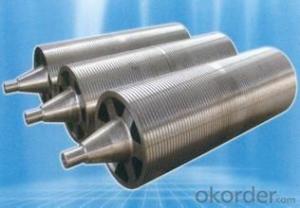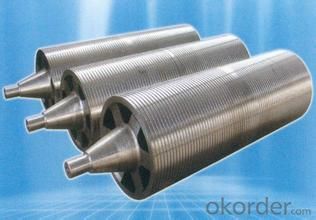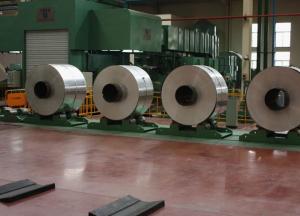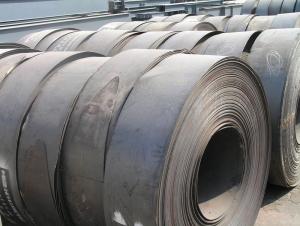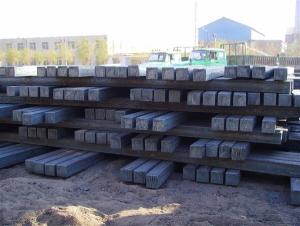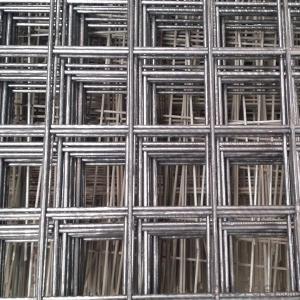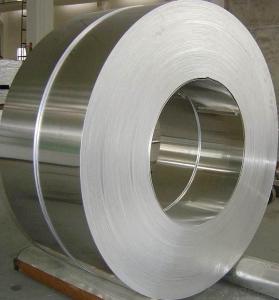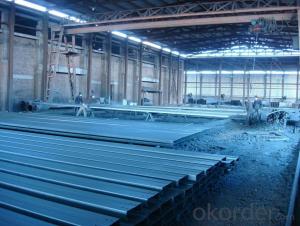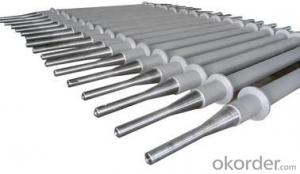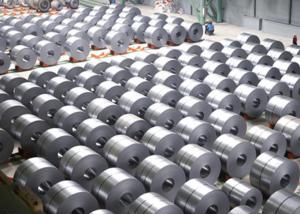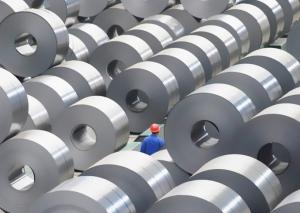DIN Standard 1.4845 1.4848 Centrifugal casting furnace rolls
- Loading Port:
- Tianjin
- Payment Terms:
- TT OR LC
- Min Order Qty:
- 1000 PCS
- Supply Capability:
- 10000 PCS/month
OKorder Service Pledge
OKorder Financial Service
You Might Also Like
Quick Details
| Place of Origin: | Brand Name: | Model Number: | JX-092 | ||
| Application: | petrochemical, metallurgical and heat treatment industries | Material: | Stainless steel,HH A297, HK A297, HP A297 etc. | Dimensions: | according to customers' drawings |
| Process: | centrifugal casting; investing casting; welding and machining |
Packaging & Delivery
| Packaging Detail: | wrapped in seaworthy wooden cases or as your request |
| Delivery Detail: | according to the quantity of the order, usually 30-40 days |
Specifications
Over 25 years experience in manufacturing furnace rollers;
High-quality products with reasonable prices and best services;
DIN STANDARD 1.4845 1.4848 CENTRIFUGAL CASTING FURNACE ROLLS
1. The rolls/rollers are of good heat, corrosion, wear-resistant properties, working at high temperature environment on average: 800 to 1200°C, which are used in the steel mills, like CAL (continuous annealing line), CGL (continuous galvanizing line)
2. Process: Centrifugal casting for barrel/tube, forging for journal/shaft, static /investment or sand casting for cone/ trunions, welding and machining and grinding
3. Materials Standards: ANSI, ASTM, ASME, DIN, GB
Materials: High nickel and high chrome heat resistant alloys, cobalt base alloys, like HU, HT, HK, HP, HW, 24/24NbTiZr, 50Cr/50Ni (2.4813), 1.4865, 1.4849, 1.4848, 1.4410, 1.4059, 1.4841, 1.4845, 1.4852, 2.4879 or as per customer's requirements
4. We have in-house facility for each inspection: composition by spectrometer, size test, mechanical test, NDT/UT/RT/PT/MT/ET
5. Advantages: More than 25 years of professional experience and continuous R&D efforts enable us to offer better custom design and engineering advice.
Use only new raw material like nickel plate, chrome iron, cobalt, ferrotungsten to guarantee physical property and increased service life of our castings.
Owned in-house production and inspect facility to guarantee the best quality.
Experienced workers for foundry, machining and welding guarantee excellent quality and prompt delivery
6. Package: packed by seaworthy wooden case or according to buyers’ request.
7. Delivery time: according to the quantity of the P.O. usually 30-40 days after the order is confirmed.
8. We can make radiant tubes, furnace rollers and other dewaxing or sand casting products according to customers’ DRAWINGS.
- Q: What is the process of manufacturing steel products?
- The process of manufacturing steel products involves several steps. Firstly, iron ore is extracted from mines and then refined to remove impurities. The refined iron ore is then mixed with coke and limestone in a blast furnace, where it is heated to extreme temperatures. This process, known as smelting, converts the iron ore into liquid iron. The liquid iron is then poured into molds to create ingots or further processed into steel through various methods like oxygen blowing or electric arc furnace. The steel is then shaped and formed into desired products through processes such as rolling, forging, or casting. Finally, the steel products undergo finishing processes like heat treatment, surface coating, and quality inspections before they are ready for distribution and use in various industries.
- Q: How is steel used in the construction of parking structures and garages?
- Steel is commonly used in the construction of parking structures and garages due to its strength, durability, and versatility. It is used for the structural framework, such as columns, beams, and trusses, providing the necessary support and stability. Steel is also used for cladding, roofing, and flooring systems, ensuring a safe and weather-resistant environment. Additionally, steel allows for flexible and efficient designs, enabling the construction of multi-level parking structures and garages with minimal space requirements.
- Q: How is steel wire galvanized?
- Steel wire is galvanized by immersing it in a bath of molten zinc or by applying a zinc coating through an electroplating process. This forms a protective layer of zinc on the surface of the wire, preventing corrosion and extending its lifespan.
- Q: How is steel used in the manufacturing of elevator systems?
- Steel is used in the manufacturing of elevator systems primarily for its strength and durability. It is used to construct the main structural components of the elevator, such as the frame, guide rails, and support brackets. Steel's high tensile strength allows it to bear the weight of the elevator car and passengers, ensuring the system's safety and stability. Additionally, steel's corrosion resistance properties make it suitable for elevator systems that may be exposed to various environmental conditions.
- Q: What are the different grades of steel used in various industries?
- There are several different grades of steel used in various industries, each with its own unique properties and applications. Some common grades include carbon steel, stainless steel, alloy steel, tool steel, and high-speed steel. Carbon steel is widely used due to its strength and affordability, while stainless steel is valued for its corrosion resistance. Alloy steel contains additional elements to enhance its strength and durability, making it suitable for applications in industries like automotive and aerospace. Tool steel is commonly used in the manufacturing of cutting tools, while high-speed steel is preferred for applications requiring high cutting speeds. Overall, the choice of steel grade depends on the specific requirements and demands of each industry.
- Q: What are the properties of carbon steel for industrial use?
- Carbon steel is a popular choice for industrial use due to its excellent strength, durability, and affordability. It is primarily composed of iron and carbon, with varying levels of other alloying elements. Carbon steel possesses high tensile strength, making it suitable for applications that require heavy loads or structural integrity. It also exhibits good machinability and weldability, allowing for easy fabrication and modification. Additionally, carbon steel can be hardened and tempered to enhance its hardness and wear resistance. However, it is susceptible to corrosion, so appropriate protective coatings or treatments are often applied in industrial settings to prevent rust and degradation.
- Q: What are the different types of steel angles and their applications in construction?
- There are several different types of steel angles used in construction, including equal angles, unequal angles, and L-shaped angles. Equal angles have equal sides and are commonly used to provide structural support, such as in the construction of beams, columns, and frames. They are also used in the fabrication of brackets, reinforcements, and various other structural components. Unequal angles have different sides and are often used to provide additional strength or stability in specific applications. They are commonly utilized in situations where unequal loads or forces need to be supported, such as in the construction of staircases, platforms, and supports for conveyor systems. L-shaped angles, also known as angle irons, have a 90-degree angle and are one of the most versatile types of steel angles. They are frequently used in construction for framing, bracing, and supporting various structures. L-shaped angles are often employed in the construction of shelves, frames for doors and windows, and as reinforcement for concrete structures. Overall, steel angles play a crucial role in construction by providing strength, support, and stability to various structures and components. Their versatility allows for a wide range of applications in different construction projects.
- Q: How are steel products used in the food processing industry?
- Steel products are used extensively in the food processing industry due to their durability, corrosion resistance, and ease of cleaning. They are used to manufacture various equipment and machinery, such as storage tanks, conveyors, cutting and slicing tools, and food processing lines. Steel products ensure food safety by preventing contamination and maintaining hygiene standards, making them indispensable in the food processing industry.
- Q: What is the process of steel galvanization?
- The process of steel galvanization involves immersing the steel in a bath of molten zinc or applying a zinc coating to the steel through a hot-dip or electroplating method. This forms a protective layer of zinc on the surface of the steel, preventing rust and corrosion and increasing its durability.
- Q: What are the applications of steel in the mining industry?
- Steel is widely used in the mining industry for various applications including mining equipment, infrastructure, and structural components. It is used in the construction of mining machinery such as drills, excavators, and trucks due to its high strength and durability. Steel is also used in the fabrication of mine shafts, storage tanks, and pipelines for transporting minerals. Additionally, steel is used in the construction of mine buildings, bridges, and other structures required for mining operations. Overall, steel plays a crucial role in the mining industry by providing robust and reliable materials for equipment and infrastructure.
Send your message to us
DIN Standard 1.4845 1.4848 Centrifugal casting furnace rolls
- Loading Port:
- Tianjin
- Payment Terms:
- TT OR LC
- Min Order Qty:
- 1000 PCS
- Supply Capability:
- 10000 PCS/month
OKorder Service Pledge
OKorder Financial Service
Similar products
Hot products
Hot Searches
Related keywords
